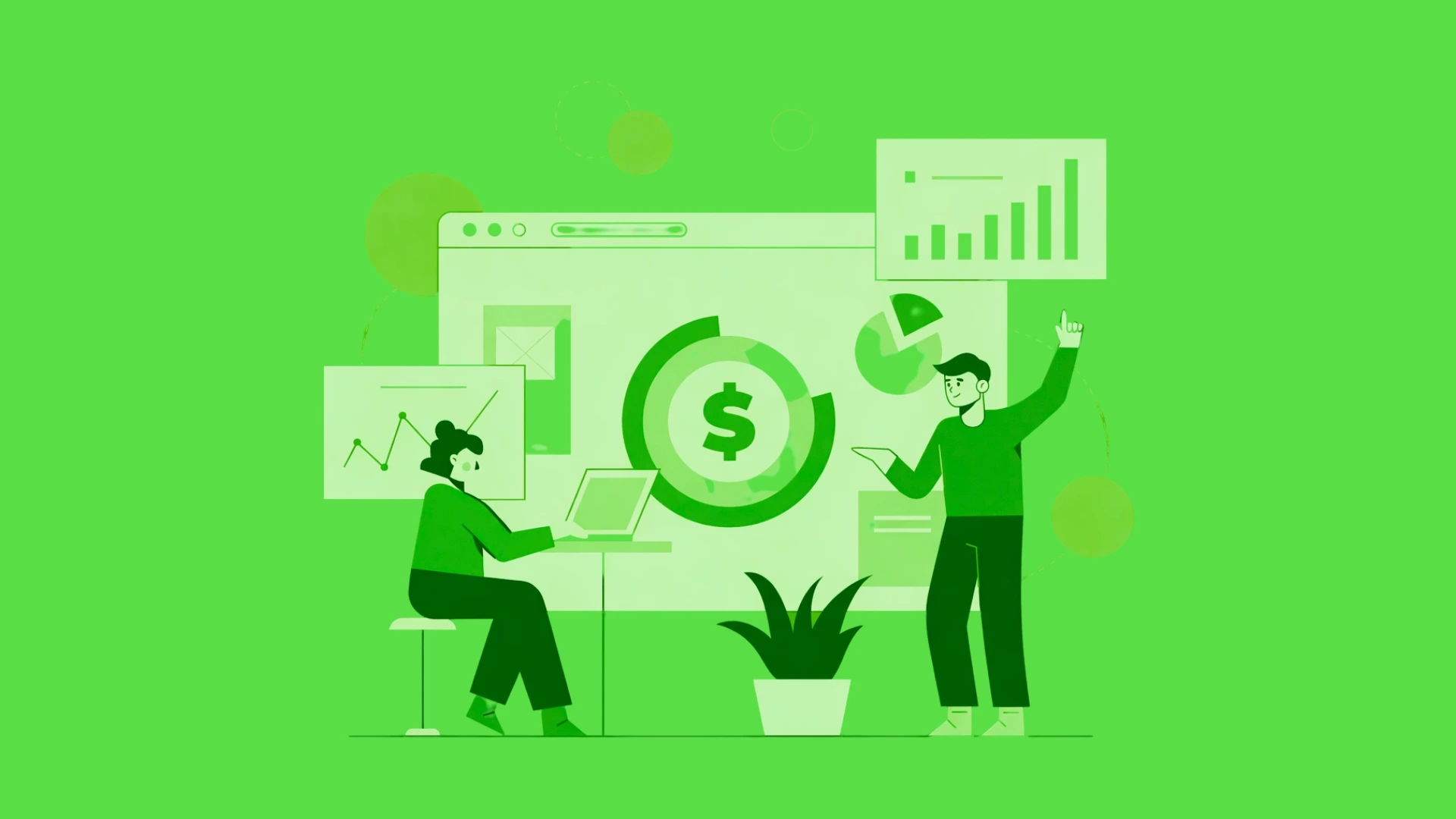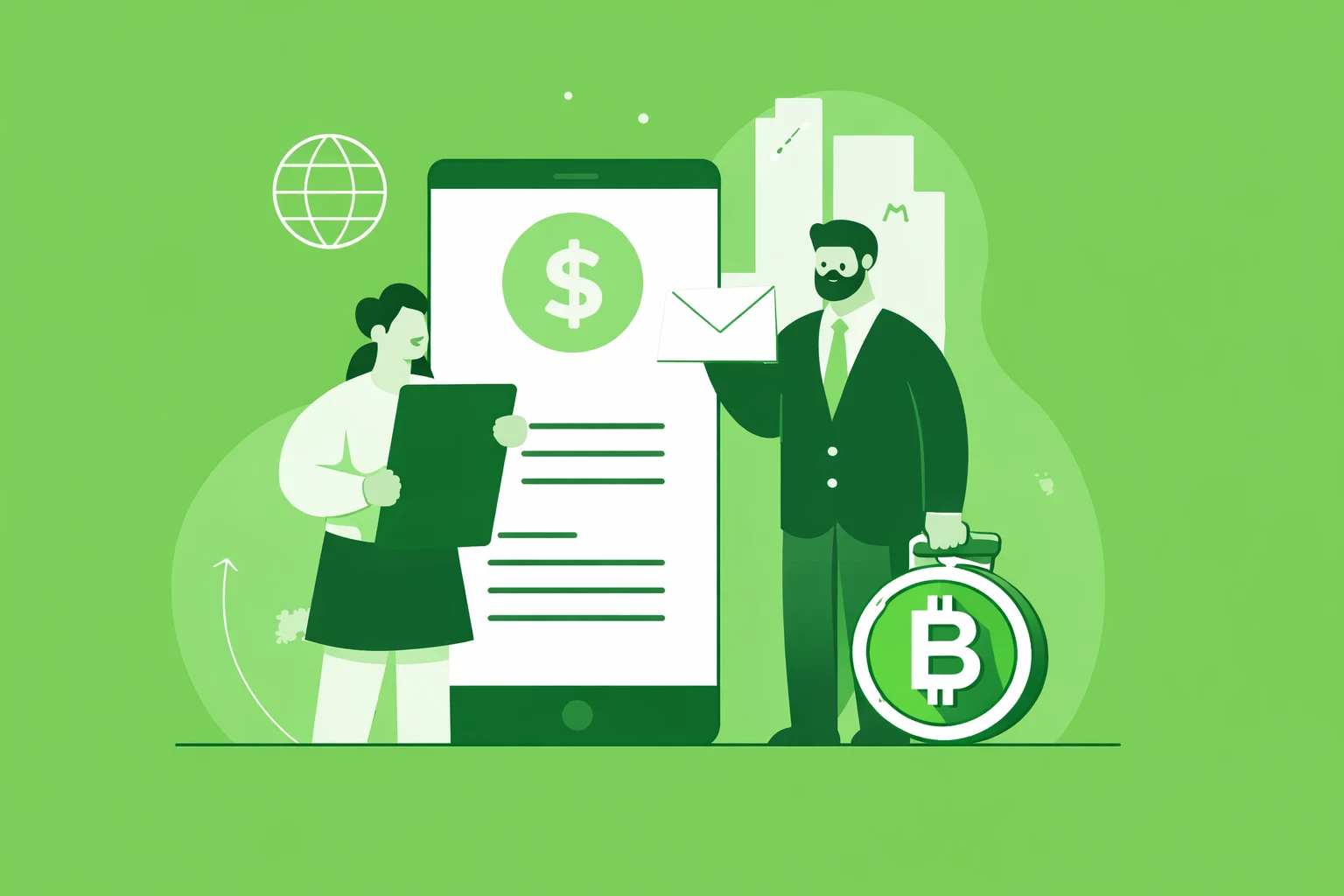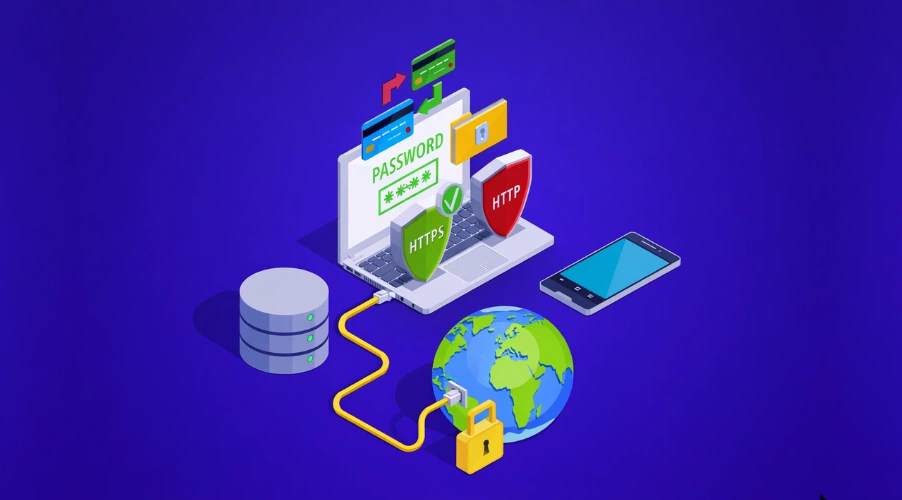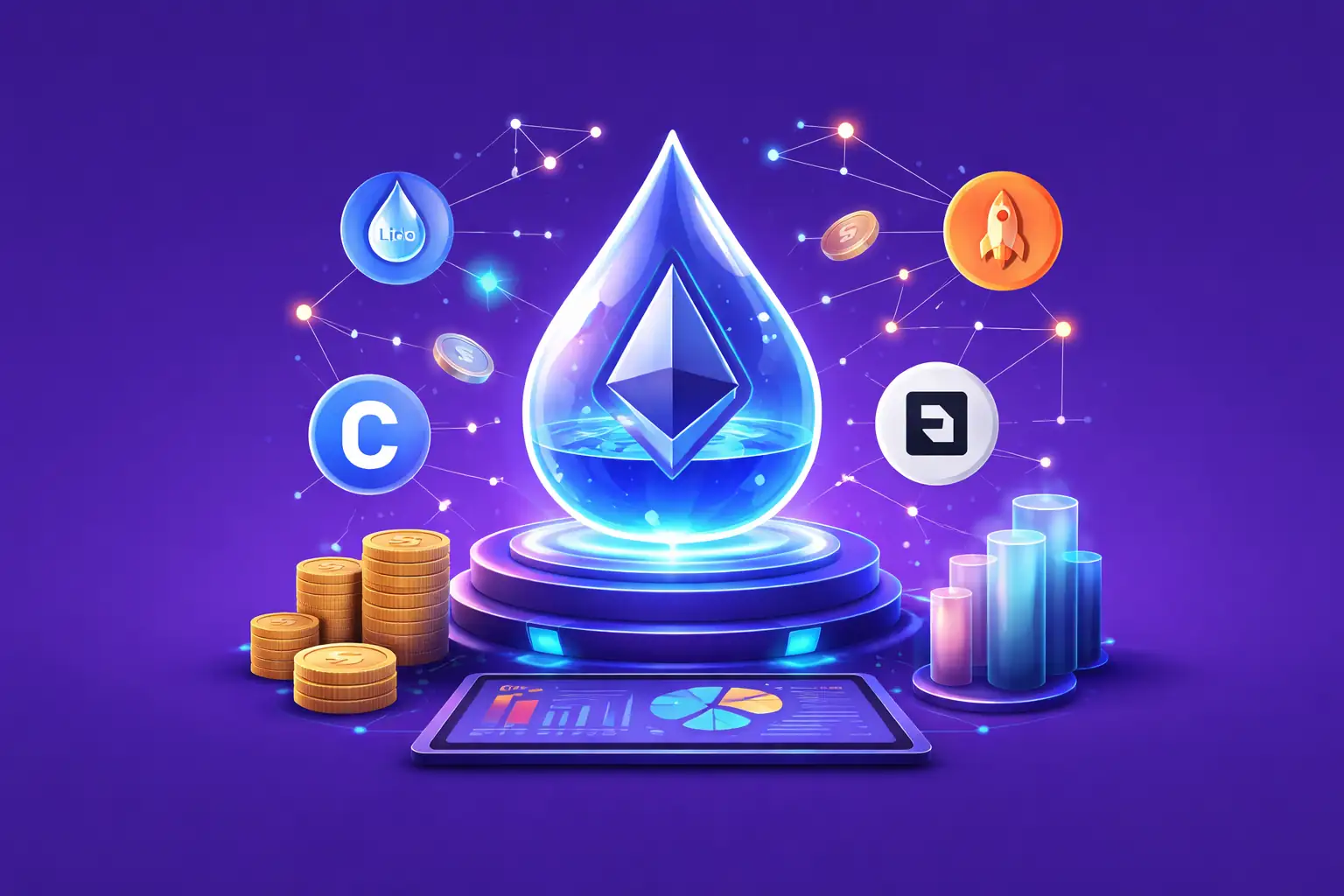Key Takeaways
- XRP Futures are contracts that let you speculate on the future price of XRP without owning the actual cryptocurrency.
- You can profit from both rising and falling XRP prices using futures contracts.
- Leverage allows traders to control a larger position with a smaller investment, but it also increases risk.
- There are two main types: perpetual futures (no expiry) and standard futures (fixed expiry date).
- Liquidation happens when your losses exceed your margin, and this is the biggest risk for beginners.
- XRP futures trading is available on popular exchanges like Binance, Bybit, OKX, and Kraken.
- Spot trading means you own actual XRP, while futures trading involves contracts based on XRP price.
- Proper risk management, stop loss orders, and small position sizing are essential for beginners.
- The XRP derivatives market is growing rapidly as institutional interest in regulated crypto products increases.
- Blockchain solution providers like Nadcab Labs play a key role in building the secure infrastructure behind crypto trading platforms.
If you have been exploring the world of cryptocurrency and wondering how experienced traders profit even when prices fall, XRP Futures might be the answer you are looking for. Unlike regular buying and selling, XRP Futures allow traders to speculate on the future price of XRP without actually owning the digital asset itself. This powerful financial tool has opened doors for millions of investors worldwide, and understanding it does not have to be complicated.
In this guide, we will break down everything about XRP Futures in the simplest possible language. Whether you are a complete beginner, a startup founder curious about crypto derivatives, or an early investor trying to grow your portfolio, this article will give you the knowledge and confidence to understand how XRP futures trading works and how to approach it wisely.
What Are XRP Futures?
To understand what are XRP futures, think of a simple real world example. Imagine you want to buy gold next month, but you are afraid the price might go up. So you make an agreement today with a seller to buy gold at a fixed price one month from now. No matter what happens to the gold price in the market, you pay only the price you agreed upon. That agreement is basically a futures contract.
Now apply that same idea to XRP. XRP Futures are financial contracts that let you agree to buy or sell XRP at a specific price on a future date. You do not actually hold or transfer any XRP coins. Instead, you trade based on where you think the price will go.
What Are Crypto Futures? Understanding the Basics
Before diving deeper into XRP specifically, let us understand what crypto futures meaning really is. Crypto futures are contracts that derive their value from an underlying cryptocurrency. Just like commodity futures are based on the price of oil, wheat, or gold, crypto futures are based on the price of digital currencies like Bitcoin, Ethereum, or XRP.
These contracts allow traders to speculate on price movements without buying or selling the actual crypto. The two most common actions in futures trading are:
- Going Long: You expect the price to go up, so you open a buy position.
- Going Short: You expect the price to go down, so you open a sell position.
This flexibility is what makes crypto futures so popular. In regular spot trading, you can only profit when prices rise. But in futures, you can potentially profit in both bullish and bearish markets.
Major exchanges like Binance Academy provide excellent educational resources that explain how these instruments work across different cryptocurrencies including XRP.
How XRP Futures Work: A Step by Step Explanation
Understanding how XRP futures work is easier when you follow the process step by step. Here is exactly what happens when a trader opens an XRP futures position:
- Choose a Trading Platform: Sign up on a crypto exchange that offers XRP futures, such as Binance, Bybit, or OKX. Complete the verification process.
- Deposit Funds Into Your Futures Wallet: Transfer funds (usually USDT or another stablecoin) from your spot wallet to your futures wallet on the exchange.
- Select XRP Futures Contract: Navigate to the futures trading section and select the XRP/USDT perpetual or standard futures pair.
- Choose Your Direction: Decide whether you want to go long (betting the price will rise) or go short (betting the price will fall).
- Set Your Leverage: Choose a leverage level. Beginners should start with low leverage such as 2x or 3x. Higher leverage like 20x or 50x amplifies both gains and losses.
- Enter Position Size: Decide how much of your balance you want to use for this trade. Never risk more than a small percentage of your total capital on a single trade.
- Place the Order: Submit your order using a market order (executes instantly) or a limit order (executes at your chosen price).
- Monitor and Manage: Watch the trade, set a stop loss to limit potential losses, and set a take profit target for your desired exit price.
- Close the Position: When you are ready, close the trade manually or let it hit your stop loss or take profit level. Your profit or loss is calculated based on the price difference.
XRP Futures vs Spot Trading: What Is the Difference?
One of the most common questions beginners ask is about the difference between XRP futures vs spot trading. Let us compare them clearly.
| Feature | XRP Spot Trading | XRP Futures Trading |
|---|---|---|
| Ownership | You own actual XRP tokens | You trade contracts based on XRP price |
| Profit Direction | Only when price goes up | When price goes up or down |
| Leverage | Not available | Available (2x to 125x on some platforms) |
| Risk Level | Lower risk | Higher risk due to leverage |
| Capital Required | Full amount needed | Only margin (a fraction) needed |
| Liquidation Risk | No liquidation | Liquidation possible if margin is depleted |
| Best For | Long term holders and beginners | Active traders and experienced investors |
| Complexity | Simple and straightforward | Requires understanding of contracts and margin |
In simple terms, spot trading is like buying a house to live in, while futures trading is like making a bet on whether the price of that house will rise or fall. Both have their place, but futures require more knowledge and careful risk management.
What Is Leverage in XRP Futures?
XRP leverage trading is one of the most powerful features of futures, and also the most misunderstood. Leverage lets you borrow funds from the exchange to open a position larger than your actual balance.
Here is a simple analogy. Imagine you have $100 and a friend says, “I will lend you $900, so you can invest $1,000 total. But if the investment drops by 10%, you owe me back and your $100 is gone.” That is exactly how 10x leverage works.
- 2x Leverage: Your $100 controls a $200 position. A 5% price move gives you a 10% gain or loss.
- 10x Leverage: Your $100 controls a $1,000 position. A 5% move gives you a 50% gain or loss.
- 50x Leverage: Your $100 controls a $5,000 position. A 2% move can either double your money or wipe it out entirely.
Types of XRP Futures Contracts
When trading XRP futures explained at its core, there are two primary types of contracts you will encounter on most exchanges:
1. XRP Perpetual Futures
XRP perpetual futures are the most popular type. These contracts have no expiration date, meaning you can hold your position for as long as you want. The price of a perpetual contract stays close to the real spot price through a mechanism called the “funding rate.” If you are holding a long position and the market is bullish, you may pay a small fee to short sellers, and vice versa.
2. Standard (Dated) Futures
Standard XRP futures have a fixed expiration date, such as the end of a quarter. When the contract expires, it is settled based on the final price of XRP. These are commonly used by institutional investors and traders who want exposure to XRP for a specific time period.
Perpetual vs Standard XRP Futures
| Feature | Perpetual Futures | Standard Futures |
|---|---|---|
| Expiry Date | No expiry | Fixed expiry (e.g., quarterly) |
| Funding Rate | Yes (periodic payments) | No funding rate |
| Price Tracking | Closely tracks spot price | May deviate from spot near expiry |
| Popularity | Very high among retail traders | More common with institutions |
| Best For | Short to medium term trading | Hedging and planned exposure |
Why Traders Use XRP Futures
There are several compelling reasons why both individual and institutional traders participate in XRP futures trading:
- Profit in Any Market Condition: Unlike spot trading, you can earn even when XRP prices drop by opening a short position.
- Capital Efficiency: Leverage allows you to control larger positions without committing your entire capital.
- Hedging Against Risk: If you already hold XRP in your wallet, you can open a short futures position to protect yourself against a potential price decline. Think of it like buying insurance for your investment.
- High Liquidity: XRP futures markets on major exchanges have deep liquidity, meaning you can enter and exit trades quickly.
- Portfolio Diversification: Futures give traders access to advanced strategies that can complement their spot holdings.
Real World Use Cases of XRP Futures
XRP futures are not just theoretical instruments. They play an active role in the global cryptocurrency ecosystem. Here are some real scenarios where they are used:
Scenario 1: The Hedging Trader
Sarah holds 10,000 XRP tokens that she bought at $0.50 each. She is worried about an upcoming regulatory announcement that could cause prices to drop. Instead of selling her XRP, she opens a short futures position. If XRP drops to $0.40, she loses value on her spot holdings but makes a profit on her short position, effectively balancing her risk.
Scenario 2: The Speculative Day Trader
Raj is a day trader who follows XRP price charts closely. He notices a bullish pattern forming on the 4 hour chart and opens a long XRP futures position with 5x leverage. When XRP moves up 3% within a few hours, he earns a 15% return on his margin and closes the trade.
Scenario 3: The Exchange Builder
A fintech startup wants to launch a crypto derivatives exchange. They partner with blockchain solution providers like Nadcab Labs to build the trading engine, smart contract infrastructure, and risk management systems needed to offer XRP futures to their users securely.
Benefits and Advantages of Trading XRP Futures
The XRP derivatives market offers multiple advantages that attract traders of all experience levels:
- Two Way Profit Potential: Open long or short positions depending on your market outlook.
- Leverage Access: Multiply your exposure with a fraction of the total trade value.
- No Need to Own XRP: Trade XRP price movements without managing wallets or private keys.
- 24/7 Market: Crypto futures markets operate around the clock, unlike traditional stock markets.
- Advanced Order Types: Use stop loss, take profit, trailing stop, and other tools to manage your trades precisely.
- Transparent Pricing: Major exchanges provide real time order books, charts, and data to make informed decisions.
XRP Futures Risks and Liquidation Explained
While XRP Futures offer exciting opportunities, they also carry significant risks, especially for beginners. Understanding XRP futures risks is essential before placing your first trade.
Liquidation Explained Simply
Liquidation is the forced closing of your position by the exchange when your losses exceed your deposited margin. Here is how it works:
Suppose you deposit $100 as margin and use 10x leverage to control a $1,000 position. If XRP moves against your position by just 10%, your loss equals $100, which is your entire margin. At that point, the exchange automatically closes (liquidates) your trade to prevent further losses. Your $100 is gone.
Key Risks to Remember:
- Leverage Amplifies Losses: The same leverage that boosts profits also magnifies losses just as quickly.
- Market Volatility: XRP can experience sudden price swings due to news, regulation, or whale activity.
- Funding Fees: Holding perpetual futures positions for extended periods may accumulate significant funding costs.
- Emotional Trading: Fear and greed can lead to impulsive decisions, overtrading, and larger losses.
- Platform Risk: Technical issues, server outages, or exchange hacks can impact your trades unexpectedly.
Common Mistakes Beginners Make with XRP Futures
Learning from others’ mistakes is one of the smartest things a new trader can do. Here are the most common pitfalls to avoid:
- Using Maximum Leverage from Day One: Starting with 50x or 100x leverage without understanding the risks is the fastest way to lose your entire balance.
- Skipping Stop Loss Orders: Not setting a stop loss means your losses can grow unchecked if the market moves against you.
- Overtrading: Placing too many trades in a short period based on emotion rather than analysis leads to compounding losses.
- Ignoring Funding Rates: In perpetual futures, funding fees can slowly eat into your profits if you hold positions too long.
- Trading Without a Plan: Entering trades without clear entry points, exit points, and risk limits is gambling, not investing.
- Risking Too Much Capital: Putting a large percentage of your portfolio into a single futures trade is extremely dangerous.
- Not Practicing on a Demo Account: Many platforms offer paper trading. Skipping this step and jumping straight to real money is a common and costly mistake.
According to educational resources from Investopedia, understanding contract mechanics and risk management before trading futures is critical for long term success.
Business and Exchange Relevance of XRP Futures
XRP Futures are not just important for individual traders. They represent a significant business opportunity for exchanges, fintech companies, and blockchain startups.
Crypto derivatives, including XRP futures, now account for a large share of total cryptocurrency trading volume globally. Exchanges that offer futures products attract more active traders, generate higher fee revenue, and build stronger user retention.
For businesses looking to build or launch a crypto derivatives platform, the technical infrastructure is complex. It requires high performance matching engines, secure smart contracts, real time risk monitoring systems, and compliance frameworks.
This is where specialized blockchain solution providers become essential. Companies like Nadcab Labs bring deep expertise in designing and developing secure, scalable crypto trading platforms. From smart contract auditing to building entire DeFi derivatives ecosystems, their technical capabilities help businesses enter the market with confidence and security.
The Future of the XRP Derivatives Market
The XRP derivatives market is poised for significant growth in the coming years. Several factors point toward increasing adoption and innovation:
- Regulatory Clarity: As governments worldwide establish clearer rules for crypto derivatives, institutional participation is expected to grow substantially.
- Institutional Adoption: Major financial institutions and asset managers are increasingly showing interest in regulated crypto futures products, including those based on XRP.
- DeFi Derivatives: Decentralized platforms are beginning to offer XRP perpetual futures on chain, removing the need for centralized intermediaries.
- Cross Chain Integration: Advances in blockchain interoperability will make it easier to trade XRP derivatives across multiple networks and ecosystems.
- Improved Tooling: Better analytics, risk management dashboards, and educational resources will make XRP futures more accessible to a broader audience of traders and investors.
As this market matures, the demand for robust blockchain infrastructure will only increase. Solution providers with deep technical expertise, like Nadcab Labs, will continue to play a vital role in building the platforms and systems that power the next generation of crypto derivatives trading.
Build Your Crypto Trading Platform with Nadcab Labs
Are you a startup, exchange, or enterprise looking to launch a secure crypto derivatives or futures trading platform? Nadcab Labs offers end to end blockchain development services, from smart contract design and auditing to full scale DeFi platform development. Leverage our expertise in Web3, trading infrastructure, and decentralized finance to bring your vision to life.
Conclusion
XRP Futures have become an essential part of the modern cryptocurrency trading landscape. They offer traders the ability to speculate on XRP price movements in both directions, utilize leverage for capital efficiency, and employ advanced strategies like hedging. However, they also come with real risks that every beginner must understand before trading.
The key to success with XRP Futures is education, discipline, and careful risk management. Start with small positions, use low leverage, always set a stop loss, and never trade more than you can afford to lose. As you build experience and confidence, you can gradually explore more advanced strategies within the XRP derivatives market.
For businesses and entrepreneurs, the growing demand for crypto futures represents a significant opportunity. Partnering with an experienced blockchain development company like Nadcab Labs can give you the technical foundation to build secure, high performance trading platforms that meet the needs of today’s crypto traders.
Frequently Asked Questions (FAQs)
Access to XRP futures in the United States depends on the platform and current regulations. Some globally regulated exchanges restrict US residents from using certain derivatives products. Always verify the compliance status of your chosen platform before trading.
Most exchanges allow you to start with as little as $10 to $50 in your futures wallet. However, it is advisable to begin with at least $100 to $200 so you have enough margin to absorb small price fluctuations without getting liquidated quickly.
Yes, in most countries, profits earned from crypto futures trading are considered taxable income. The specific tax rules vary by jurisdiction, so it is recommended to consult a qualified tax professional who understands cryptocurrency taxation in your region.
Yes, many traders use automated trading bots that connect to exchange APIs to execute XRP futures trades based on predefined strategies. Popular platforms like 3Commas, Pionex, and custom built bots can automate entry, exit, and risk management rules.
If an exchange experiences downtime during an open position, your trade remains active. Most reputable exchanges have auto deleveraging or insurance fund mechanisms to protect users, but there is always a risk during outages. Using stop loss orders helps mitigate this risk.
No, futures positions cannot be transferred between exchanges. Each position is tied to the exchange where it was opened. If you want exposure on a different platform, you would need to close your current position and open a new one on the other exchange.
The funding rate is typically settled every 8 hours. Depending on market conditions, you either pay or receive a small fee. If you hold a long position in a bullish market, you may pay a funding fee to short holders. These costs can accumulate significantly over days or weeks.
Futures are generally designed for short to medium term trading rather than long term investing. For long term exposure to XRP, buying and holding the actual token in a secure wallet is usually a simpler and more cost effective approach.
Isolated margin limits your potential loss to the amount allocated to a specific trade. Cross margin uses your entire futures wallet balance as collateral, which can prevent liquidation longer but risks your full balance if the trade fails. Beginners should generally start with isolated margin for better risk control.
Perpetual futures usually stay very close to the spot price due to the funding rate mechanism. However, standard dated futures can trade at a premium or discount compared to spot, especially near expiration. This difference is known as the basis, and it can create additional trading opportunities.
Reviewed & Edited By

Aman Vaths
Founder of Nadcab Labs
Aman Vaths is the Founder & CTO of Nadcab Labs, a global digital engineering company delivering enterprise-grade solutions across AI, Web3, Blockchain, Big Data, Cloud, Cybersecurity, and Modern Application Development. With deep technical leadership and product innovation experience, Aman has positioned Nadcab Labs as one of the most advanced engineering companies driving the next era of intelligent, secure, and scalable software systems. Under his leadership, Nadcab Labs has built 2,000+ global projects across sectors including fintech, banking, healthcare, real estate, logistics, gaming, manufacturing, and next-generation DePIN networks. Aman’s strength lies in architecting high-performance systems, end-to-end platform engineering, and designing enterprise solutions that operate at global scale.







